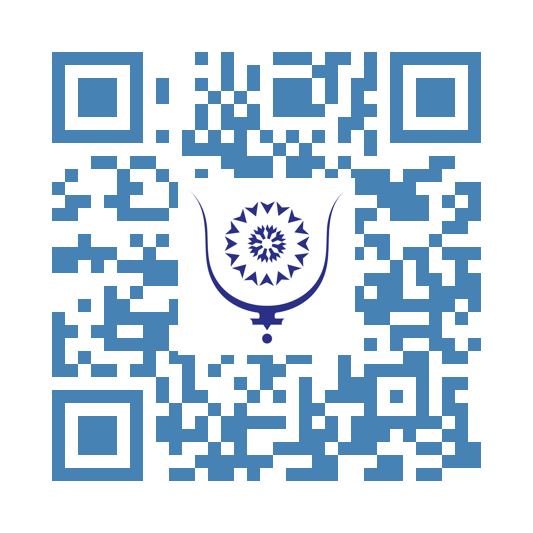AN INTERNATIONAL CONFERENCE ON PHENYLKETONURIA IN MOROCCO 3011
The 2nd international conference on phenylketonuria (PKU) was held on November 17-19, 2023, in Marrakech. This event was co-organized by 4 associations: The Moroccan Association for Child and Mother’s Health (AMSEM), HMEMSA (Home of Moroccan Educators and Moroccan Students in America), SOS PKU MAROC, American Moroccan Competencies Network, and the support of the Alliance of Rare Diseases in Morocco (AMRM).
INFORMATION AND AWARENESS FOR HEALTH PROFESSIONALS AS WELL AS PATIENTS AND FAMILIES
This event aimed to promote the health of affected people with this disease through education, awareness, and support for research. PKU is a rare hereditary disease responsible, in the absence of diagnosis and early treatment, for psychomotor and mental retardation with serious consequences. The accumulation of an aminoacid (phenylalanine) becomes toxic and destroys the nerve cells in the brain. The only available treatment is a diet based on dietary products with low amounts of phenylalanine, which are, unfortunately, very expensive.
Eminent specialists from Morocco, the United States, Canada, and Europe intervened during the first scientific day. The 2nd day “PKU family camp” was dedicated to families, patients, and medical professionals to exchange the right support for parents with PKU patients and the long-life management of these patients. The day will was also an opportunity for the clinician specialists to offer consultations to patients and psycho-educational support to their families.
AN AFFLICTION WITH TOO OFTEN IRREVERSIBLE CONSEQUENCES
PKU is caused by a disorder in the metabolism of phenylalanine, an aminoacid (protein fragment) present in food, and typically transformed into another aminoacid, tyrosine. The enzyme responsible for this aminoacid conversion is defective in PKU patients. The PKU babies gradually develop mental and psychomotor retardation with symptoms such as seizures, nausea and vomiting, skin rash, hyperactivity, aggression or self-harm, reduced head circumference (microcephaly), lighter skin, eyes and hair (a result of tyrosine deficiency). Children often have a “mousy” or musty odor due to a phenylalanine by product in their urine and sweat.
THE DIET IS “AN ALMOST IMPOSSIBLE MISSION.”
The child must follow a very strict low-protein diet, where meat, fish, eggs, dairy products, and starchy foods are eliminated until the age of 12, then, depending on the case, relaxed during adolescence. The precarious availability in Morocco and the high cost of specific dietary products (flour, special pasta, complementary solutions, etc.) often mean that children “literally starve” to respect these rules. A box of specific milk for children costs around 500 Dh and is rarely available in Morocco! In addition, a medication that stimulates the breakdown of phenylalanine and helps reduce the diet in some children exists but is also unavailable! In addition to the enormous constraints generated by the disease, families experience a “real struggle” between the high cost and unavailability of treatment! We must underline the significant assistance the association HEMSA in the US provided for shipping dietary products to SOS PKU in Morocco and their continuous advocacy efforts to have PKU recognized in Morocco.
A LIFE-SAVING GESTURE BUT UNFORTUNATELY NOT SYSTEMATIZED IN MOROCCO : NEONATAL SCREENING
Depending on the country, the disease affects between 1 in 20,000 and 1 in 4,000 newborns. Morocco most likely has a high prevalence due to the high consanguinity in the society, which increases the frequency of this genetic disease. Typically, this disease must be screened systematically in all newborns; the absence of this screening and the early regime results in several thousand children and adults with mental disabilities. This test, carried out using a few drops of blood taken on the 3rd day of life and placed on a blotting paper, would make it possible to avoid these complications. The test already exists in all European and certain Arab countries.
CONSULTATION WITH PUBLIC AUTHORITIES
Discussions are underway with the Ministry of Health and the various stakeholders for recognizing PKU as a long-term condition, launching a neonatal screening program, and marketing dietary products in Morocco. The event was an an excellent opportunity to sign partnership agreements between AMSEM and SOS PKU MAROC with the Alliance of Rare Diseases in Morocco. This exciting development will undoubtedly pave the way for fruitful collaboration between these organizations, improve and save lives, reduce PKU patients suffering, and provide substantial spill over benefits for maternal, child, and family health.
Dr MOUSSAYER KHADIJA الدكتورة خديجة موسيار
Chairwoman of Alliance Rare diseases Morocco
RESUME EN FRANÇAIS
Les 17 et 18 novembre 2023 s’est tenue à Marrakech la 2ème conférence internationale sur la phénylcétonurie (PCU), coorganisée par 4 entités : Association Marocaine pour la Santé de l’Enfant et de la Mère (AMSEM), HMEMSA (Home of Moroccan Educators and Moroccan Students in America), SOS PKU MAROC, American Moroccan Competencies Network et avec le soutien de l’Alliance des Maladies Rares au Maroc (AMRM).
Cet évènement avait pour objectif de promouvoir la santé des personnes atteinte à travers l’éducation, la sensibilisation et le soutien à la recherche. La PCU est une maladie rare héréditaire responsable, en absence de diagnostic et de prise en charge précoce, d’un retard psychomoteur et mental aux conséquences graves, à la suite de la destruction des cellules nerveuses du cerveau par l’accumulation toxique d’un acide aminé (phénylalanine). Le seul traitement est un régime alimentaire se basant sur des produits diététiques faibles en phénylalanine, malheureusement très chers.
D’éminents spécialistes du Maroc, des Etats Unis, du Canada et d’Europe sont intervenus lors d’une 1ère journée scientifique. La 2ème journée, le « PKU family camp », a été dédiée aux familles, patients et aussi au corps médical pour échanger et faire connaître les bonnes pratiques au quotidien, notamment pour une meilleure efficience du régime.



